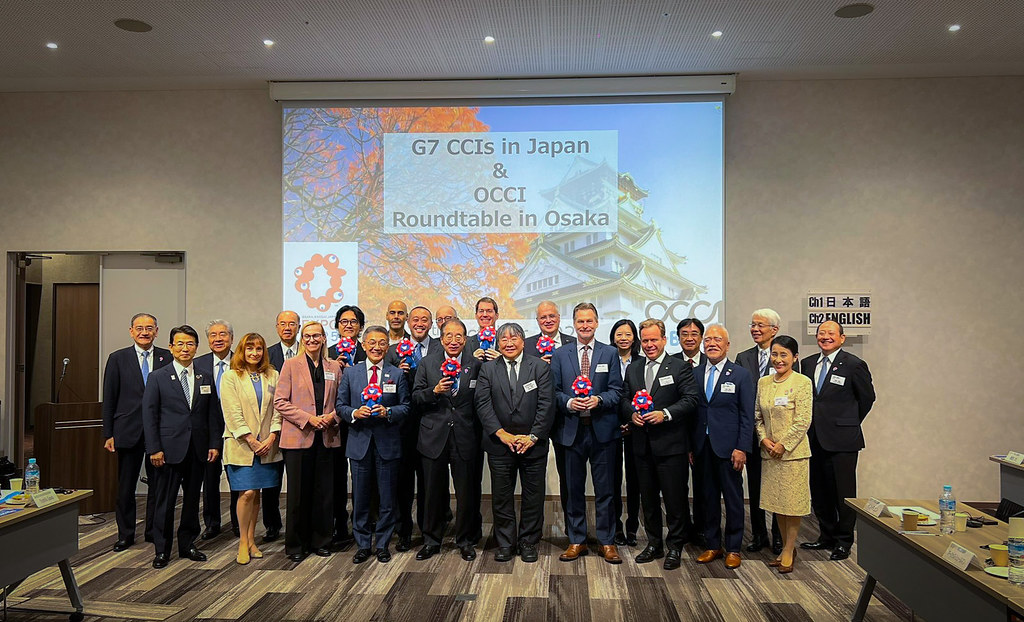Member? Please login
Morrow Sodali: Sustainability Trends Across APAC: 2024 Outlook for Boards

Written by BCCJ
March 12, 2024
Community and Business, Member News
Author: Heather Prosser, Managing Director, Head of Sustainability, Japan
Source: Morrow Sodali
As the global community intensifies its focus on sustainability, the Asia-Pacific (APAC) region stands at the forefront of pivotal trends shaping the future of business practices. From shifting consumer preferences to regulatory reforms, APAC presents a dynamic landscape for organisations navigating the sustainability agenda. In 2024, boards in the region must keep a keen eye on emerging trends to stay ahead of the curve and drive meaningful impact to avoid a myriad of risks. Here are a few of the key sustainability trends to watch this year:
1. Circular Economy Initiatives
In recent years, the concept of the circular economy has gained significant traction across APAC as businesses seek to minimise waste and optimise resource usage. Companies are increasingly adopting circular business models, emphasising product reuse, recycling, remanufacturing and end-of-life design. This trend is particularly prominent in industries such as electronics, automotive, and fast-moving consumer goods. Boards need to assess the feasibility of integrating circular practices into operations to enhance efficiency, maintain competitive advantage and reduce environmental footprint.
2. Green Finance and Sustainable Investment
The APAC region is witnessing a surge in green finance and sustainable investment activities, driven by both governmental policies and investor demand. Sustainable bonds, green loans, and environmental, social, and governance (ESG) investing are experiencing rapid growth, with China, Japan, and Singapore emerging as key hubs. Boards must recognise the importance of ESG factors in attracting investment and accessing capital markets. Integrating sustainability metrics into financial reporting and disclosing ESG performance will be crucial for maintaining investor confidence and securing funding.
3. Renewable Energy Transition
As most countries across APAC commit to reducing carbon emissions and combatting climate change, the transition to renewable energy sources is accelerating. Solar, wind, and hydropower projects are proliferating, supported by favourable government policies and declining renewable energy costs. In 2024, boards must evaluate the risks and opportunities associated with renewable energy adoption, including regulatory compliance, technological advancements, and energy security. Investing in renewable energy infrastructure and incorporating clean energy solutions into business operations can enhance resilience and competitiveness.
4. Supply Chain Resilience and Transparency
The COVID-19 pandemic exposed vulnerabilities in global supply chains, prompting companies to reassess their sourcing strategies and prioritise resilience. In APAC, there is growing momentum towards building transparent and sustainable supply chains, driven by concerns over ethical practices, climate risks, and regulatory requirements. Boards need to collaborate closely with supply chain partners to enhance transparency, traceability, and responsible sourcing practices. Embracing digital technologies such as blockchain can facilitate real-time visibility and accountability across complex supply networks.
5. Digitalisation for Sustainability
Digital technologies are playing a pivotal role in advancing sustainability goals across APAC, enabling data-driven decision-making, operational efficiency, and innovation. Artificial intelligence, Internet of Things (IoT), and big data analytics are empowering companies to optimise resource utilisation, minimise waste, and mitigate environmental impacts. Boards must prioritise digitalisation initiatives that align with sustainability objectives, such as smart manufacturing, energy management systems, and sustainable product design. Leveraging digital tools can drive cost savings, enhance productivity, and foster sustainable growth.

6. Social Impact and Stakeholder Engagement
In an increasingly interconnected world, businesses are under growing pressure to address social issues and engage with diverse stakeholders. APAC companies are recognising the importance of sustainable initiatives like community engagement, and inclusive business practices. Boards must proactively assess and respond to stakeholder expectations, including employees, customers, communities, and advocacy groups. By integrating social impact considerations into business strategy and decision-making, companies can build trust, enhance reputation, and create shared value for society.
7. Regulatory Landscape and Compliance
Governments across APAC, with the exception of Australia, are enacting stricter environmental regulations and enforcement measures to tackle sustainability challenges effectively. From carbon pricing schemes to extended producer responsibility (EPR) frameworks, companies face a complex and evolving regulatory landscape. Boards need to stay abreast of regulatory developments, assess compliance risks, and embed sustainability into corporate governance structures. Collaboration with industry associations, policymakers, and civil society can help shape regulatory agendas and foster a conducive business environment for sustainable practices.
In conclusion, sustainability remains a critical imperative for businesses operating in the APAC region, driven by evolving stakeholder expectations, investor demands, and regulatory pressures. In 2024, boards must embrace these key trends and integrate sustainability considerations into their strategic decision-making processes. By proactively addressing environmental, social, and governance issues, companies can enhance resilience, drive innovation, and create long-term value for stakeholders in the dynamic APAC market.
Morrow Sodali provides corporate boards and executives with strategic advice and services relating to investor engagement, environmental, social, and corporate governance, mergers and acquisitions and shareholders activism, strategic communications, investor relations, and research. For further information, click here. For any inquiries, please contact us at:
[email protected]








